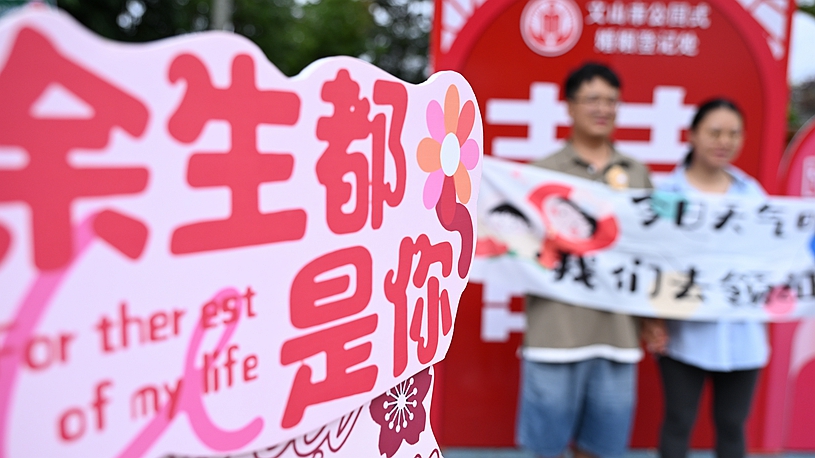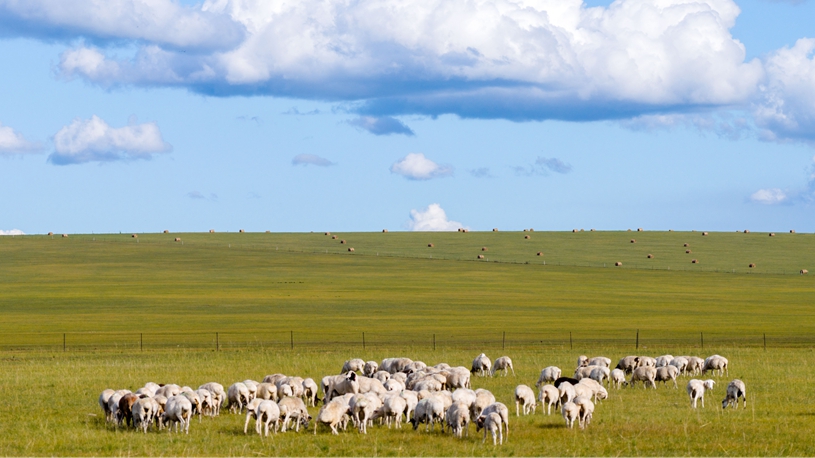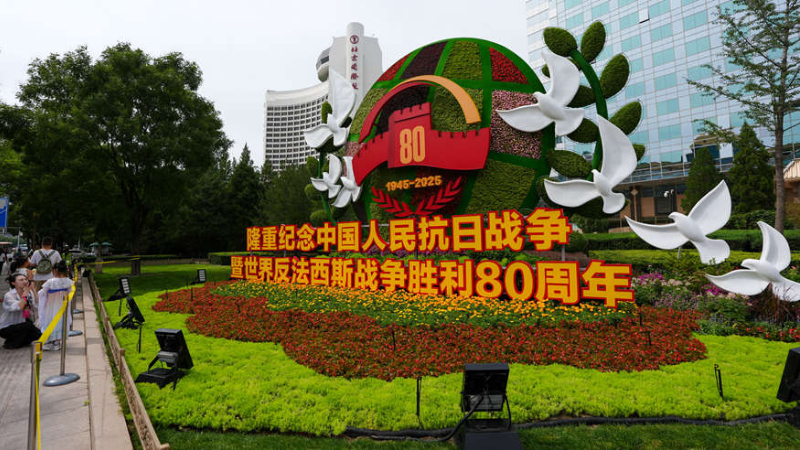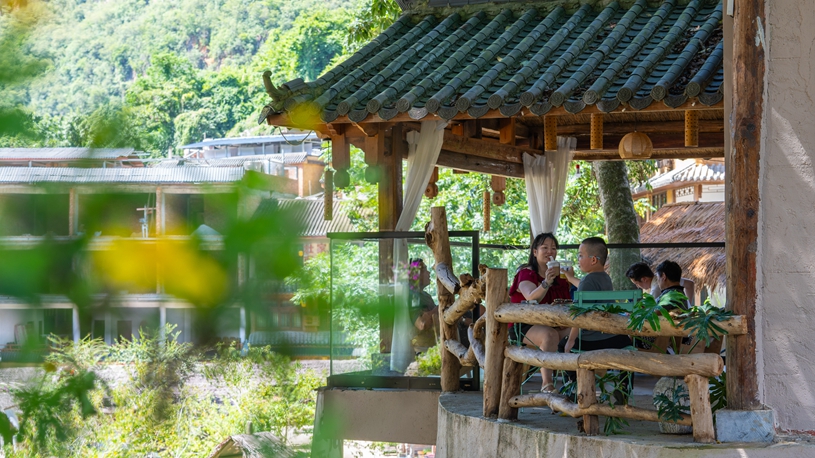Ecological guardians serve on the roof of the world in NW China
Source: Xinhua
Editor: huaxia
2025-08-31 12:35:15
XINING, Aug. 31 (Xinhua) -- Under low-hanging clouds and amid vast grasslands, the Longbaotan Wetland on the Qinghai-Tibet Plateau was veiled in mist. Not far away, a few black-necked cranes took flight.
Xu Qingmin, deputy director of the Qinghai Province Ecological and Environmental Monitoring Center in northwest China, was conducting ground monitoring. With a soil sampler in hand, he walked toward the center of the wetland and knelt to sift through the earth.
Located in Yushu Tibetan Autonomous Prefecture at an average altitude of over 4,200 meters -- Longbaotan Wetland is one of the world's highest plateau wetlands. It was included in the list of internationally important wetlands in 2023 and is China's first national nature reserve focused on protecting the black-necked crane and its breeding grounds.
"Longbaotan contains diverse ecosystems, including alpine lakes, marshes and meadows -- and is home to rare wildlife such as the black-necked crane. It has great value for ecological monitoring," said Xu. He and his team drove 12 hours from Qinghai's capital city of Xining to conduct the fieldwork.
Ecological monitoring, notably, is complex and highly specialized, requiring patience and attention to detail. Tasks include analyzing vegetation structure and coverage, measuring biomass, testing soil elements and identifying species.
Born in east China's Shandong Province, Xu came to Qinghai in 2001 to study environmental science and later earned a master's degree in ecology. "My research focused on grassland conservation. Staying in Qinghai allows me to apply my expertise and contribute to protecting the country's grasslands," he said.
For over two decades, Xu has worked across the riverheads and mountains of the plateau. The center he works for, established back in 1984, is responsible for operating the provincial ecological monitoring network and conducting quality management. It now has 109 employees, nearly half of whom were born in the 1990s.
Among them is 29-year-old Xu Wenting, with a Ph.D. in physical geography, who joined the center in October last year. She has already participated in important projects -- such as the periodic assessment of Qinghai Lake's ecosystem and remote sensing monitoring in key regions.
Remote sensing technology is becoming smarter and more digital, which will greatly improve ecological monitoring, said Xu Wenting, a native of Qinghai. "I hope to use my expertise to serve my hometown."
In addition to monitoring, Xu Qingmin and his team also contribute to ecological legislation. As a deputy to the National People's Congress, the country's national legislature -- he took part in soliciting suggestions for the law on ecological protection of the Qinghai-Tibet Plateau.
"The ecosystem here is fragile and vital, but monitoring capabilities are still weak. We suggested enhancing ecological assessment and promoting data sharing among departments," said Xu Qingmin. These recommendations were adopted and incorporated into the law.
Looking ahead, the team aims to achieve automation in ecological monitoring through cooperation with universities and research institutes. "Soon, we may simply place samples such as soil or water into analyzers, and the system will generate results automatically. Monitoring will become more precise and efficient," Xu Qingmin said.
Over the past decade, Xu Qingmin has set foot in almost every major ecological zone in Qinghai -- from the Qilian Mountains to Sanjiangyuan. Each sample and data point reflects the dedication of these ecological guardians.
"We aim not only to record the innate beauty of the plateau, but also to contribute to building Qinghai into an ecological civilization highland," Xu Qingmin noted. ■










Comments